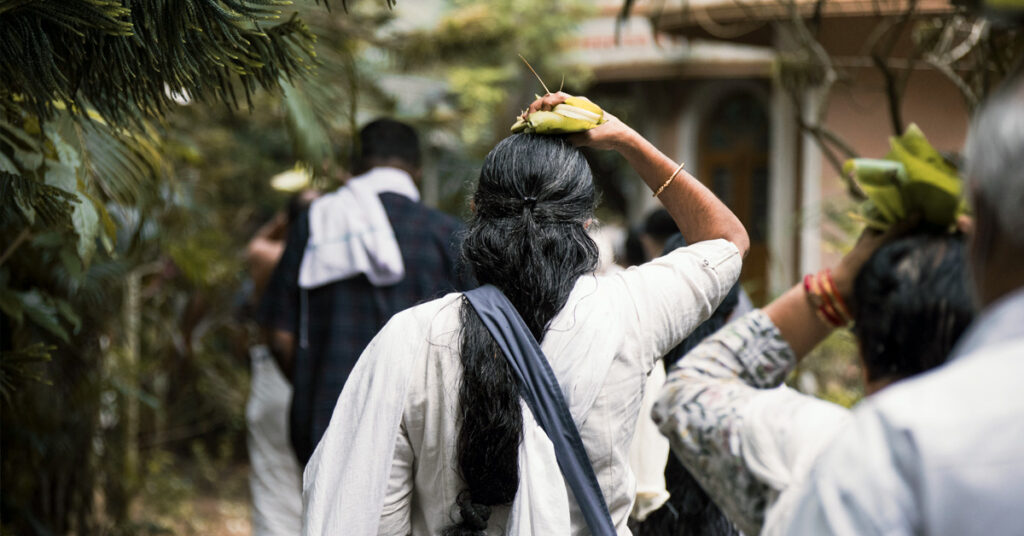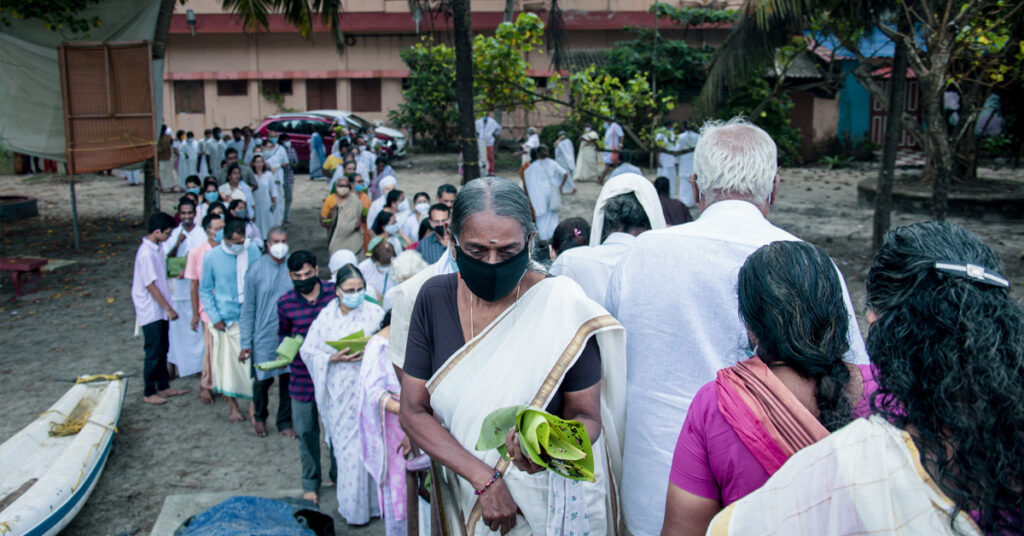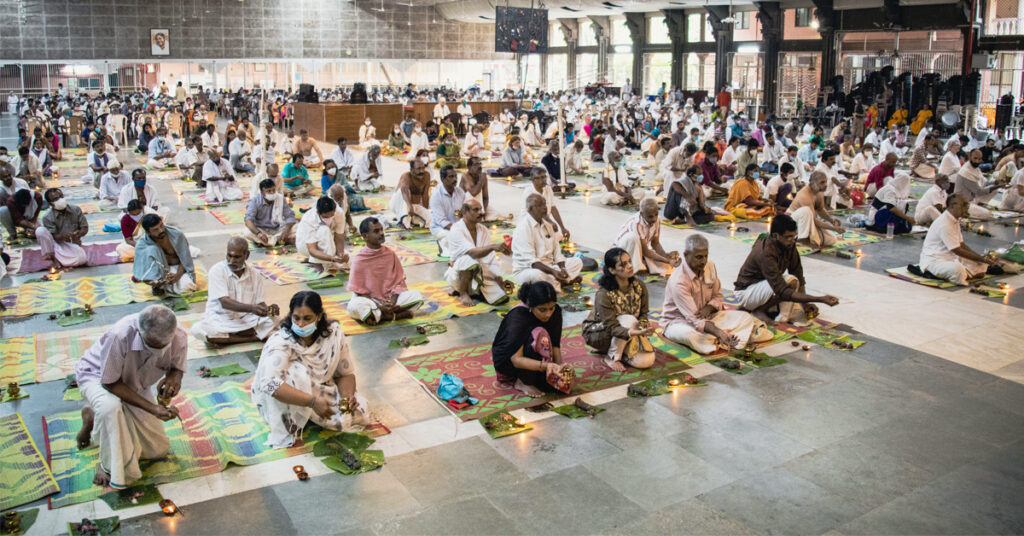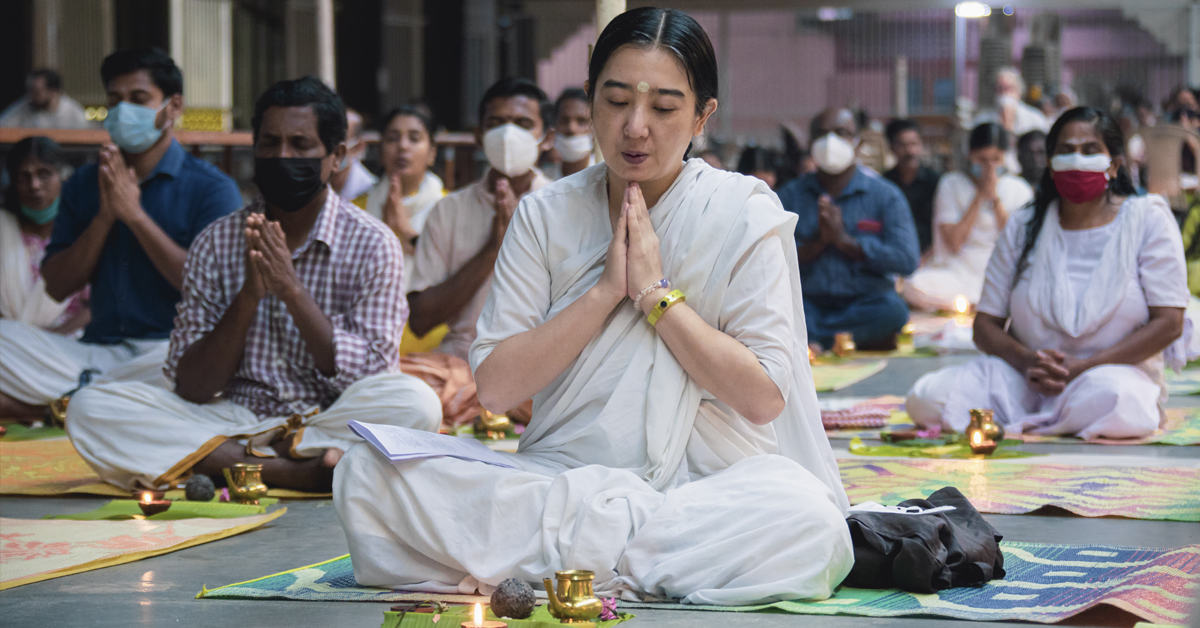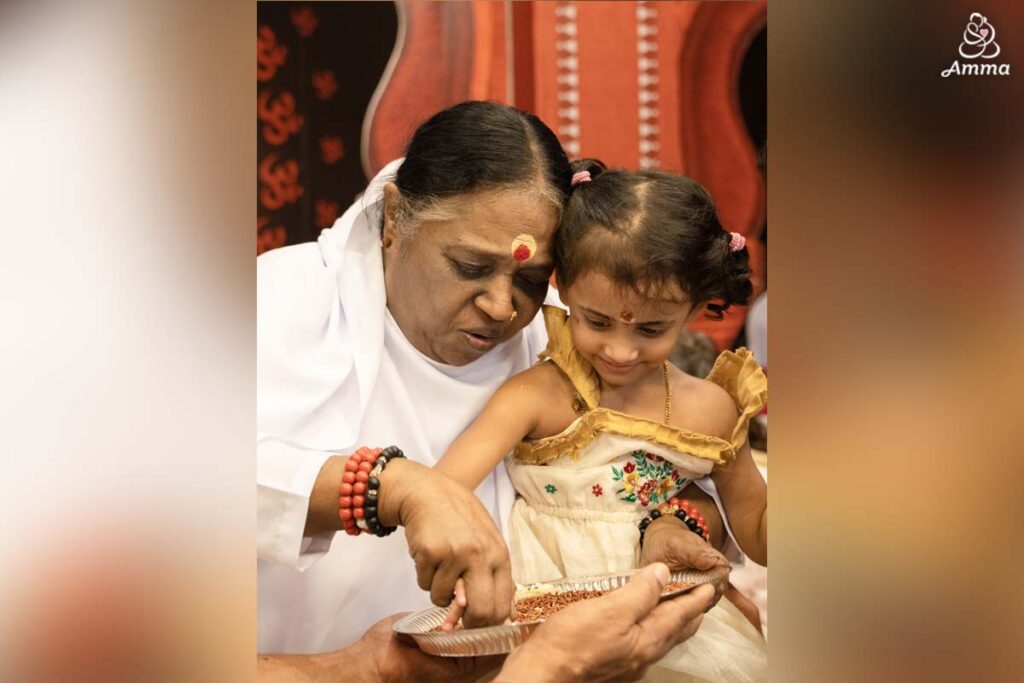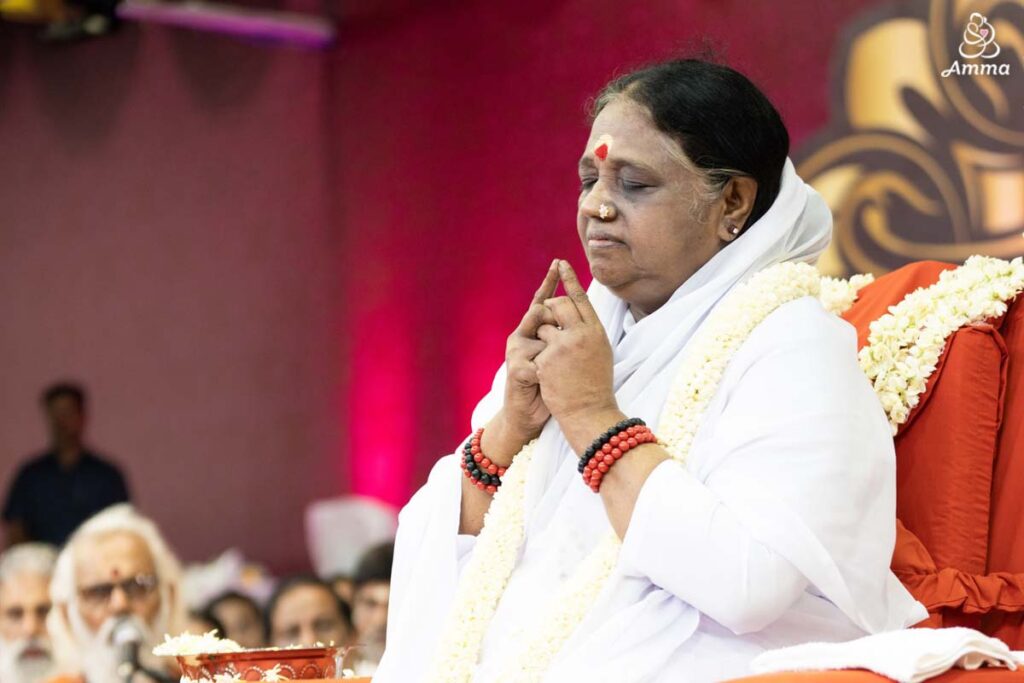Amritapuri – July 28, 2022
Vavubali is a thanksgiving ceremony performed to show gratitude towards one’s ancestors and Mother Nature. It is an ancient tradition in Kerala that takes place once a year on the new moon day of the Malayalam month of Karkidaka.
Given the universal language of love that Amma communicates to all, the practice has now been adopted by people across India and around the world. There are participants from all walks of life, and many say they experience profound unity during the ceremony.
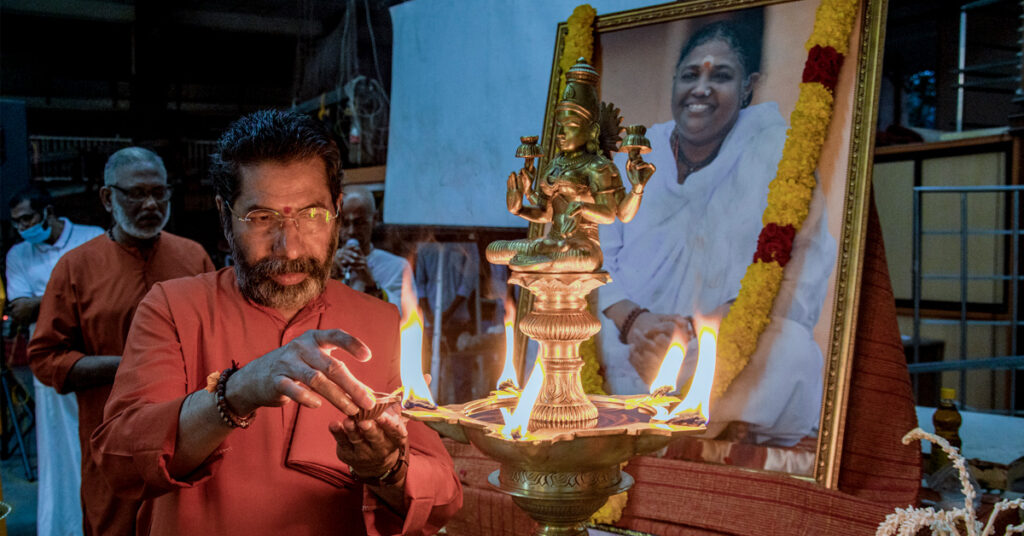
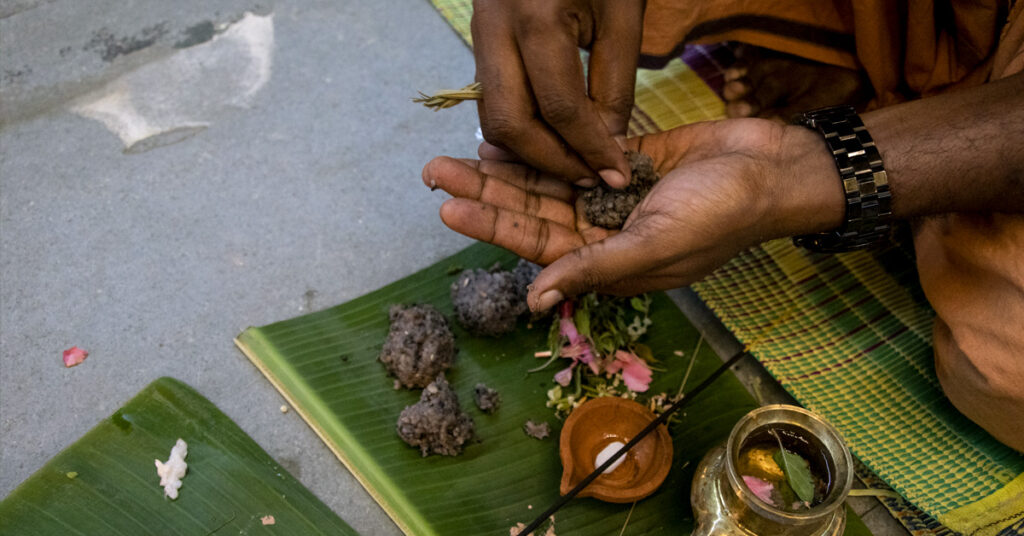
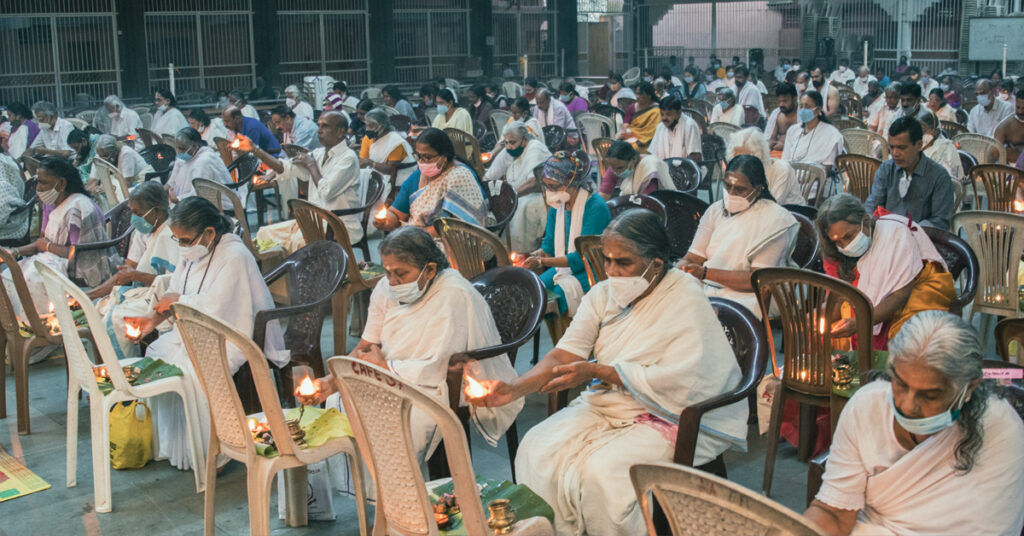
This year, participants joined the rites performed in Amritapuri via webcasts in their regions—people from North America, South America, Europe, Asia, Africa, and the Middle East. The languages included English, French, Finnish, German, Hindi, Italian, Japanese, Kannada, Malayalam, Portuguese, Russian, Spanish, Tamil, and Telugu.
“Vavu” refers to the new moon day and “bali” means offering. The puja encompasses paying respect to three forms of indebtedness: the first to natural powers, the second to the Rishis—our ancient realised masters who imparted knowledge to humanity, and the third to our ancestors.
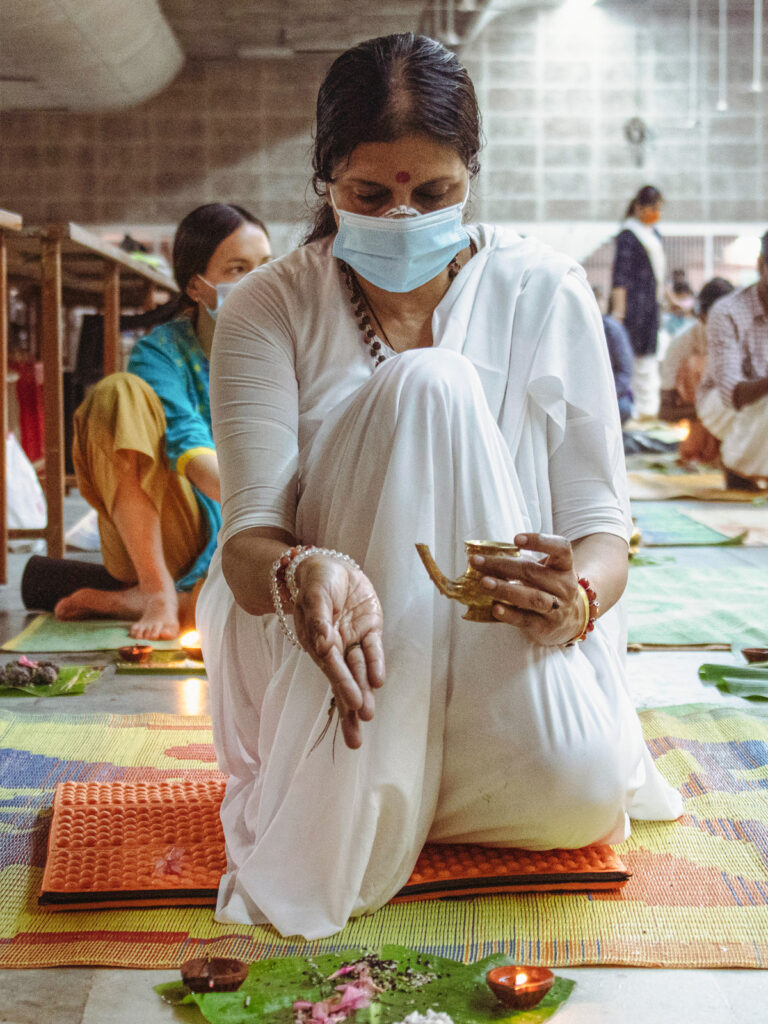
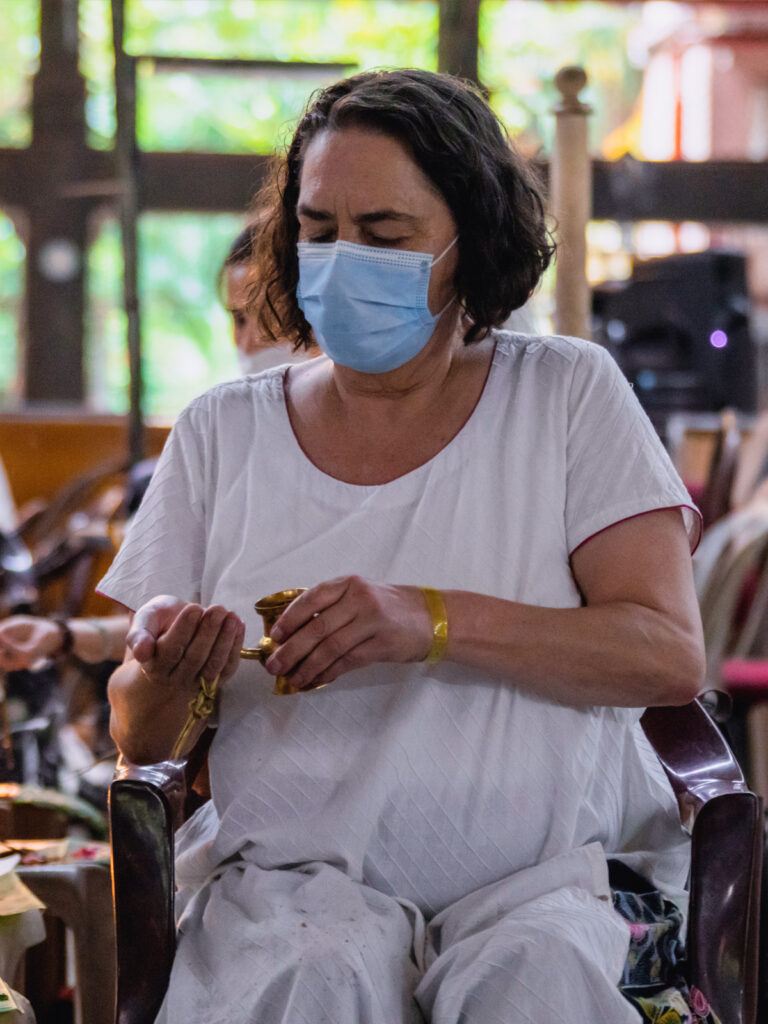
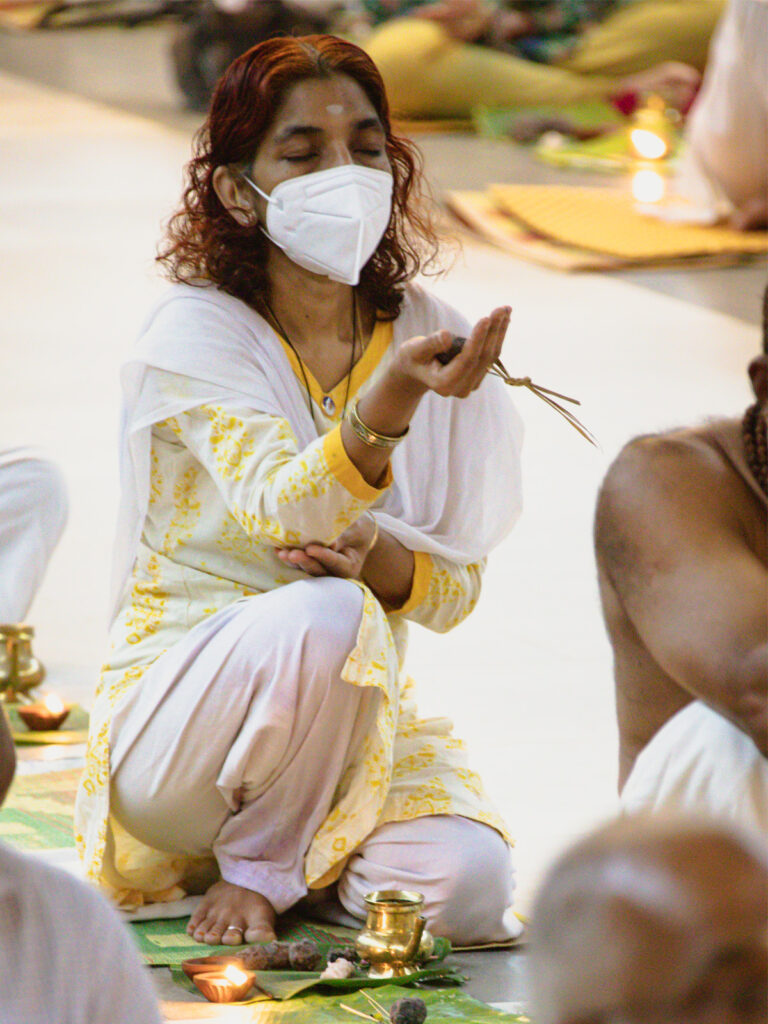
During the ceremony, we offer specially prepared rice balls called pinda to our ancestors. After the offering is made, it is left outside to be consumed by birds, fish, animals, and insects. This becomes Bhuta Yajna: an offering to all the beings in nature.
Through the ritualistic offering of water, known as Tharppanam, we pay our debts to the natural powers and the Rishis. This becomes Deva Yajna and Rishi Yajna. Next, people also engage in feeding the poor, distributing clothes to the needy, and donating to charitable causes. This is Nri Yajna: serving humankind.
Following the practices of Vavubali, we are able to experience how all are links in the same chain, and this puja in honour of our ancestors becomes a Brahma Yajna: a connection to the entire creation.
